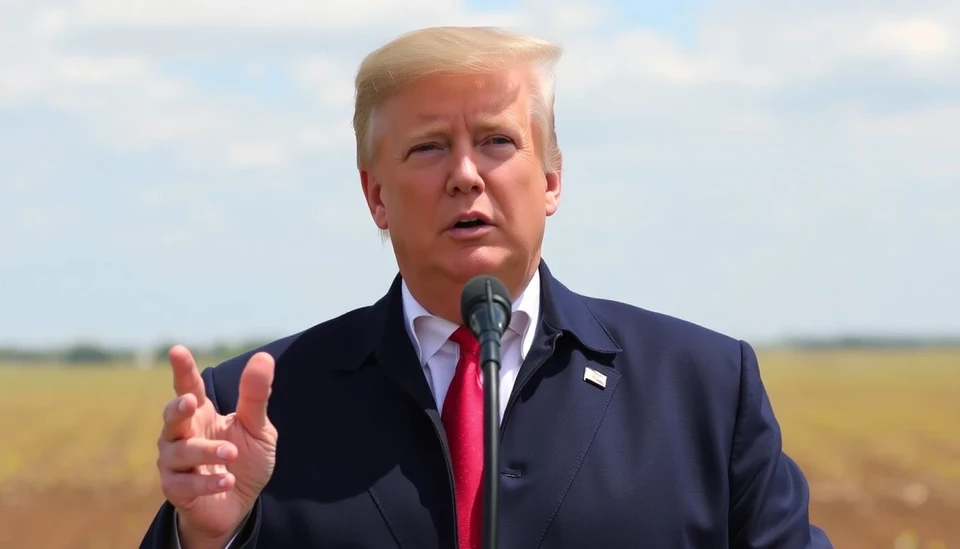
In a bid to bolster American agricultural independence, former President Donald Trump is advocating for an increase in domestic fertilizer production. This initiative comes in response to the escalating prices and supply chain issues that have plagued the fertilizer market, significantly impacting U.S. farmers. However, experts caution that even a significant push towards domestic production may fall short of replacing the extensive imports currently relied upon by the industry.
The transition towards self-sufficiency in fertilizer manufacturing is not merely an economic challenge but also a logistical one. The U.S. is a major consumer of fertilizers, with a substantial portion of its supply coming from overseas. This reliance became glaringly apparent as global conflicts and trade disruptions began to affect supply chains in recent years, leading to soaring prices that have put immense pressure on agricultural producers.
Trump's proposal includes incentives for existing U.S. fertilizer manufacturers to expand their operations, alongside the promotion of new entrants into the market. He argues that bolstering local production will not only stabilize prices but also create jobs in struggling rural economies. Critics, however, highlight that the scale of U.S. fertilizer production is insufficient to meet domestic needs fully, as current operations are far from the capacity required.
Moreover, production of fertilizers is resource-intensive and contingent upon a volatile market for raw materials. Natural gas, a critical component in nitrogen fertilizer production, has seen fluctuating prices that can affect production costs. Industry analysts suggest that without substantial investments in infrastructure and technology, efforts to ramp up domestic fertilizer output may be hindered.
Additionally, environmental concerns surrounding fertilizer production practices put further strain on efforts to increase domestic supply. Sustainable practices and regulations cannot be overlooked in the rush to expand manufacturing capabilities, complicating Trump's push for rapid growth in the fertilizer sector. Critics point out that a balance must be struck between increasing production and maintaining environmental integrity.
As American farmers brace for the planting season, the ongoing debate around fertilizer imports versus domestic production remains in the spotlight. With input costs at a historic high, many agricultural producers are left scrutinizing their budgets and searching for solutions that could sustain their operations through dire market conditions.
In conclusion, while Trump's aim for greater U.S. fertilizer self-sufficiency resonates strongly with the agricultural community, the realities of production capabilities, environmental concerns, and market dynamics suggest that his push will not fully alleviate dependence on imports in the near future. The situation calls for a comprehensive strategy that considers not only immediate economic needs but also long-term sustainability for the agricultural industry at large.
#Trump #Fertilizer #Agriculture #USFarming #DomesticProduction #SupplyChain #Sustainability #Farmers
Author: Daniel Foster




